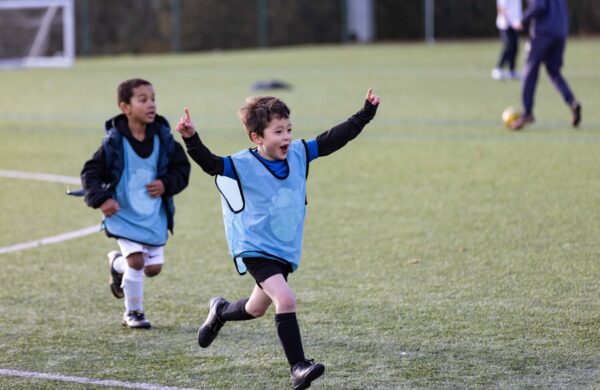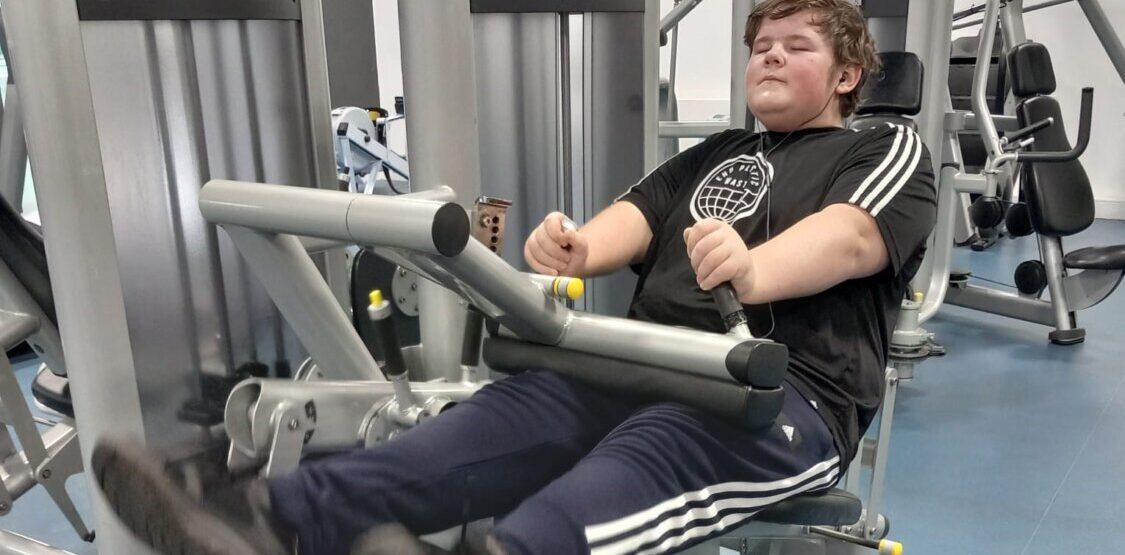
Engaging Young People: A toolkit
A resource to help you amplify youth voice.

Date: 22 January 2025 Author: Energise Me
Activation was a 6-month project run by Southampton Children’s Hospital specifically for young people with complications from excess weight who needed support to live healthy lives in 2024.
The project was delivered following feedback from a previous pilot project. To really engage the young cohort from the beginning we asked them a series of questions to help us shape Activation. The responses to those early conversations were really important in shaping what Activation became. It meant we could deliver what the young people needed in a way that they wanted.
It’s easy to tell people they need to get active but unless they know how, or where to go or what to wear, that can actually be really difficult.
At first, I sent out an e-mail to say that we’ve got this exciting opportunity coming up – ‘you’ll learn about nutrition and try new activities to better your wellbeing’. It’s easy to tell people they need to get active but unless they know how, or where to go or what to wear, that can actually be really difficult. And that’s what we wanted to help with.
We had a few people respond straight away, but still had some spaces left. So, I spoke to some other young people during their one to ones, where I was able to talk to them about it in more detail and ease any worries they had.
We had 12 young people sign-up. Bar one, all came to their first session which was amazing. Numbers did decrease during the project, and that’s okay. It’s really daunting to be a part of something like this. And, sometimes, we have to just accept it’s not the right time for them.
We ran monthly Saturday sessions, which were 4 hours long. They included 45 minutes in the gym, activities like basketball, tennis or games and we’d end with lunch. Then fortnightly, we’d do a virtual drop-in on Thursdays so the young people could tell us about any challenges they were facing.
We were tactical with how we embedded the educational element into those Saturday activity sessions. At lunch times, we’d put the food into sections and put an eat-well guide in the centre of the table. So, young people were more informed about what they were picking. While during the physical activity, we would talk about the muscles they were using.
You’ve got to be willing to change the plan to keep them engaged. The young people will respect that and respond so much more if you do.
We’ve always got the young people’s best interests at heart, but we needed to make sure that they wanted and enjoyed what we were offering.
We had this amazing basketball team come in and do a session with us, and because the young people enjoyed it so much, we did it again! Also, because they enjoyed basketball, we thought: what aspect did they enjoy and where is it replicated? Equally, when they didn’t show much enjoyment towards something, we didn’t do it again.
Originally, I had created these booklets – which took me ages to make – but we ended up scrapping those completely. I think they viewed it like school in the end. So, you can definitely pick up on how they feel towards different things. You’ve got to be willing to change the plan to keep them engaged. The young people will respect that and respond so much more if you do. Coming together with other colleagues to share and reflect on what they’ve noticed was really helpful in doing that.
I said to them: if your best is only 20% today and you’ve given me 20%, then you’ve still given me 100% of what you had. And our best varies day-to-day.
Some days, there’d be a young person who wasn’t in the mood while a different group was having a great time. And that can be quite tricky to spread yourself between those two moods. For me, you’ve got to normalise that no journey is the same. And there will be ups and downs. So, I said to them: if your best is only 20% today and you’ve given me 20%, then you’ve still given me 100% of what you had. And our best varies day-to-day.
Even though these young people are all within the same age bracket and medical team, they’re all still individuals and we needed to find little personal things that made them feel recognised. There’s so much power in checking in with young people after a session – sending them a quick message to say “you smashed it, I’m so proud of you.” Reminding them of the little things that they won’t pick up on like helping to put equipment away, for example. This way you’re helping to instil that confidence and self-esteem that they may not be getting elsewhere.
Consistency is key in creating an environment where young people can thrive. The place, the staff, the communication, all of it, so they know what to expect and can come and immerse themselves immediately in the opportunity. Personally, I’d put admin-time in my calendar every Friday afternoon so that I could check in with the young people before Saturday.
It’s also important to remember that young people are not in charge of the money, they’re not the ones doing the food shopping, they can’t drive themselves to activities, so connecting with the parents is equally as important. When someone’s attendance dropped, speaking with their parents and reminding them that this was a unique opportunity often brought the young person back. And sharing their child’s wins with them too – the young people are going to be tired when they get home. So sometimes we had to speak for them and say: this is what they did today, here’s the outcome, here’s how they did, and it was brilliant, do you want to see some photos?
They are absolutely inspiring, and I so enjoyed being a part of their journey.
These young people have never engaged in anything like Activation before. They’ve made new friends, who they’re meeting with outside of sessions, and their confidence has increased. So much so, we’re seeing them attend other opportunities that we offer.
In the early days, we had some young people arrive hiding behind their parents. Towards the end, they’ve left their parent in the car outside and walked in by themselves. They are absolutely inspiring, and I so enjoyed being a part of their journey.
When we host the next round of Activation in December, we’re going to run the programme for 8-months. We reflected on how long it takes for young people to feel comfortable, build trust and feel confident to do something, and it needed to be a little longer. We’re ending the project before exams too. It was just too stressful for the young people to manage revision and showing up to sessions.
We’re also going to target specifically Southampton-based young people. I’d like to get the young people going to outdoor gyms and going on walks so they can better understand how to utilise what’s around locally.
Also, we funded a gym membership for all the young people at the start of the programme. When we run Activation again, we won’t do that until the end because some of them loved basketball so much and would have benefited more from a basketball membership than a gym one.
Sustained change takes time and commitment and it is important for this to be modelled in the support that is provided. Ups and downs are normal in any journey – don’t give up and be open to adapting.

I am a youth worker at Southampton Children’s Hospital in the PEEER Youth Service. (Patient Empowerment Employability Self-Esteem Resilience.) We are a youth service that supports any young person with a long-term health condition who is a patient at the hospital between the ages of 11 and 25. In my personal life, I really enjoy physical activity. It’s done the world of good for my wellbeing. So, I really enjoy helping get the young people I work with moving as it has amazing benefits for them too.